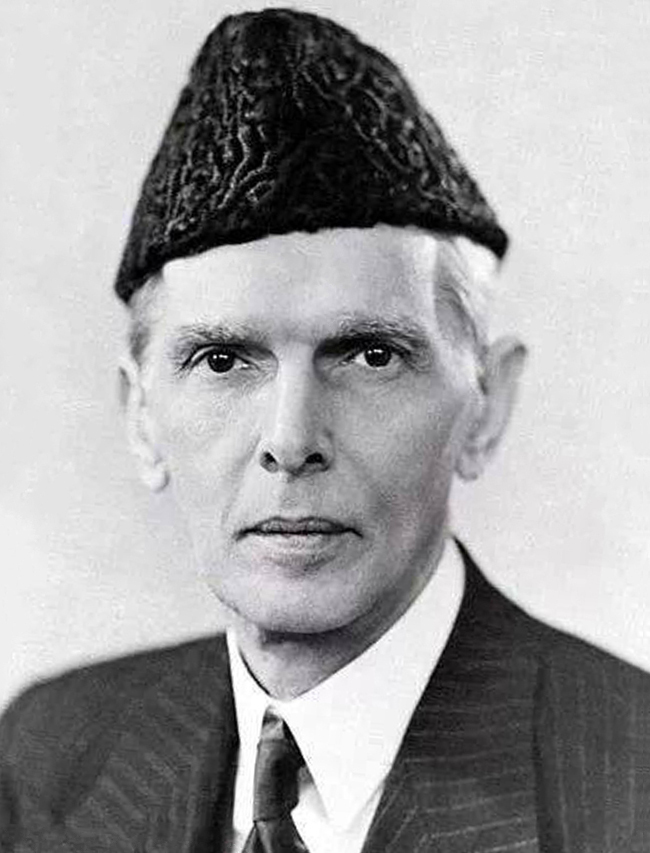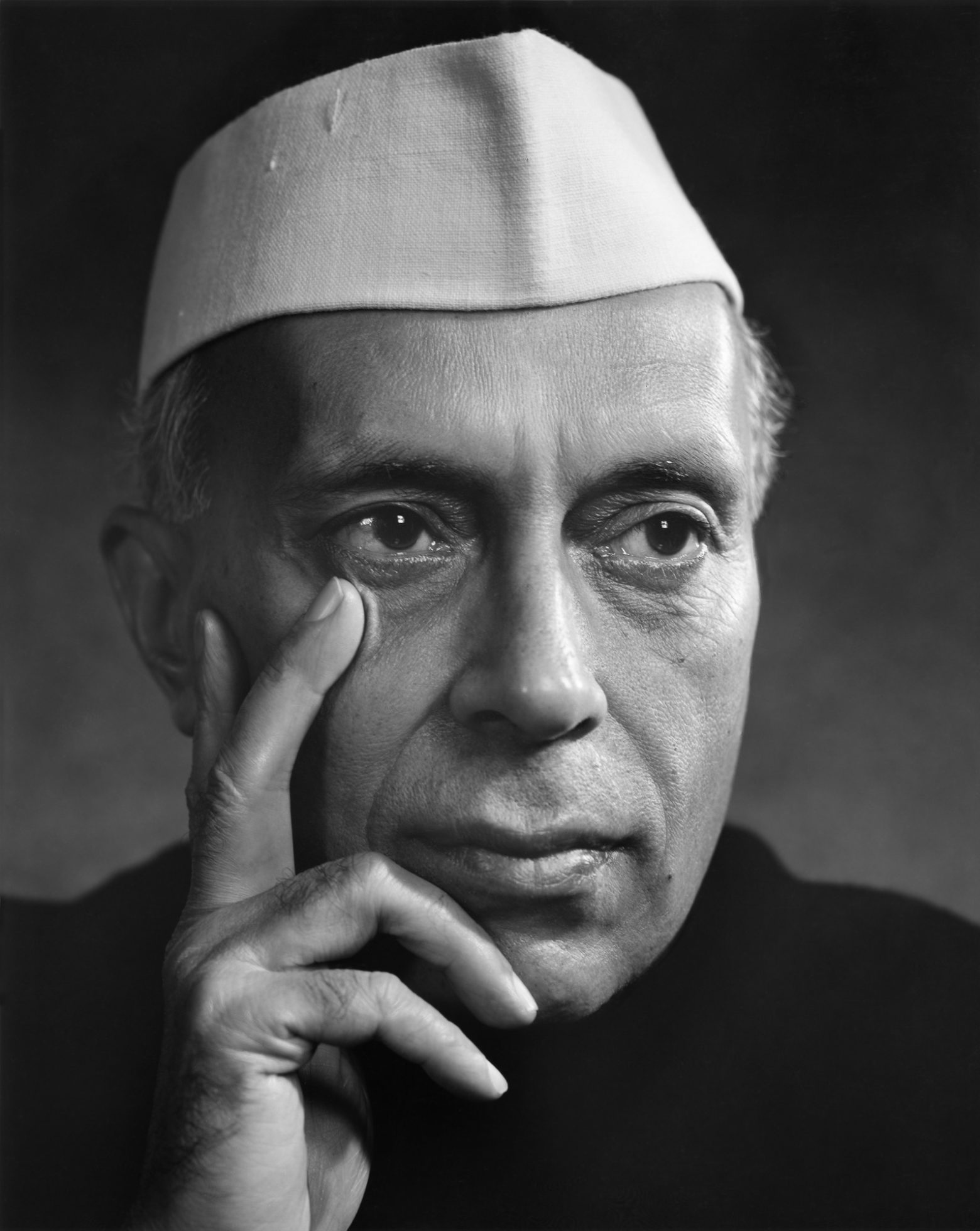PRE-PARTITION
British Motives for Indian Colonialism:
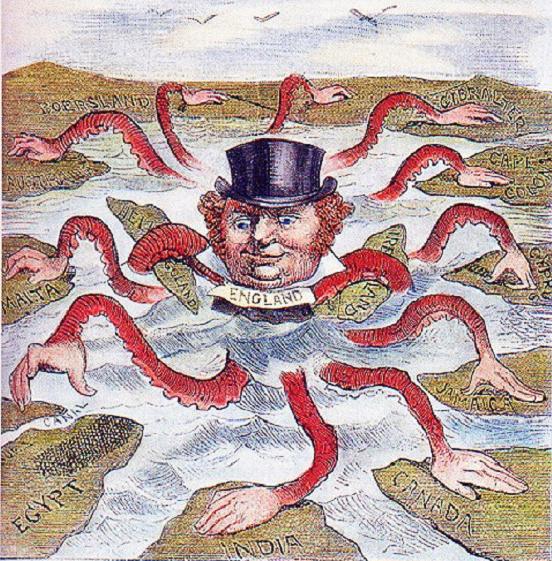
Imperialism Cartoon. 1882. Granger Historical Picture Archive.
Britain possessed three main motives for imperialism: expanding influence and increasing power, securing access to spices/lucrative commodities, and controlling the Indian Ocean trade, as trade centered around India.
Distribution of Land:
22 Million
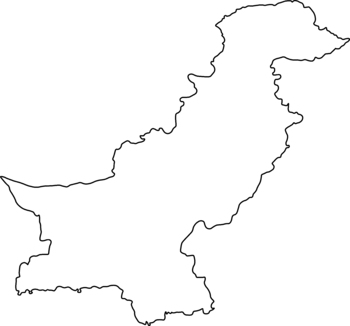

70 Million
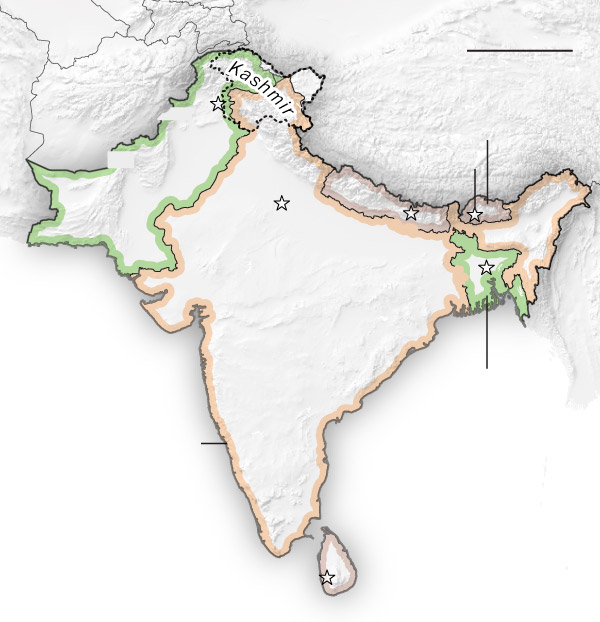

48 Million
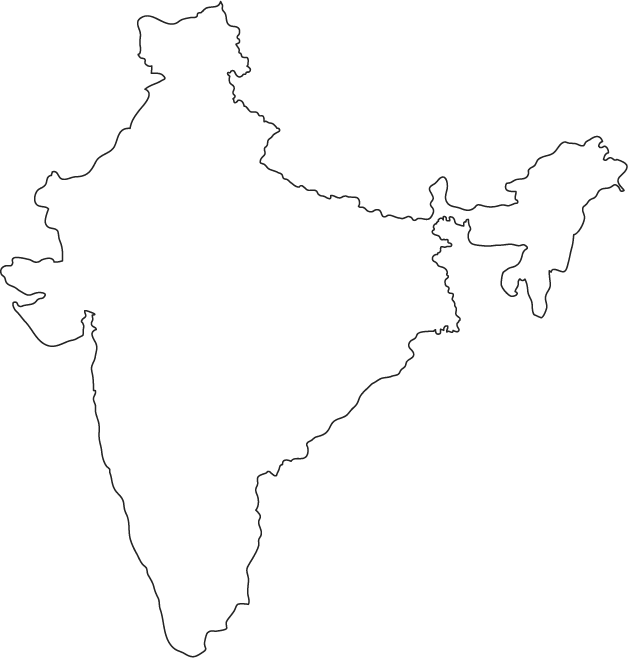
*Hover to reveal acres of land*
Left: Pakistan; Center: Pre-Partition India; Right: Post-Partition India
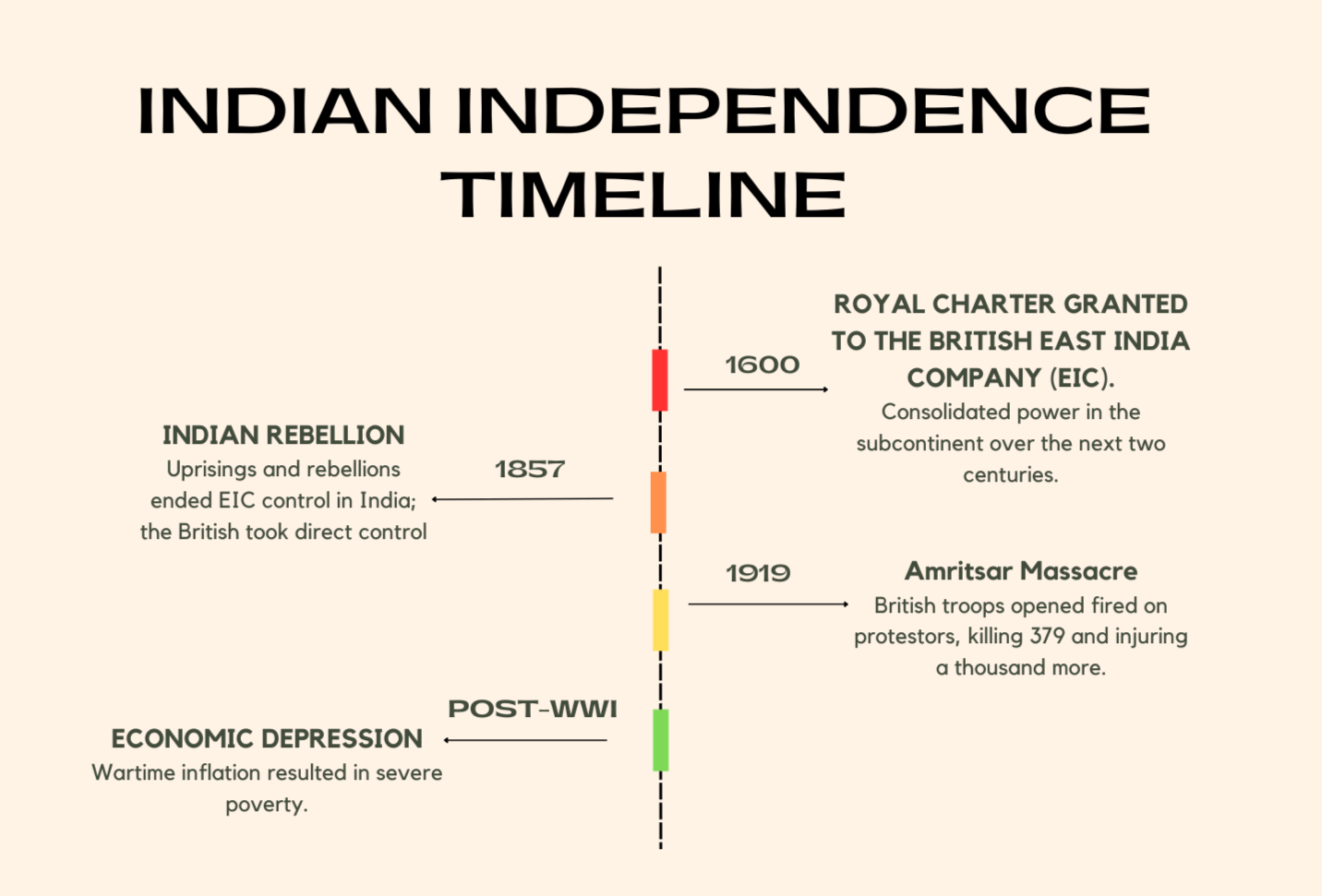
Britain attempted to further constrict rights, but economic depression and massacres nurtured independence movements. In the 1920s, India saw civil disobedience led by Mahatma Gandhi and the Indian National Congress, a political party.
By 1930, the INC, led by Jawaharlal Nehru, called for independence by boycotting British goods to challenge colonial rule, marking a turning point and inspiring independence movements.
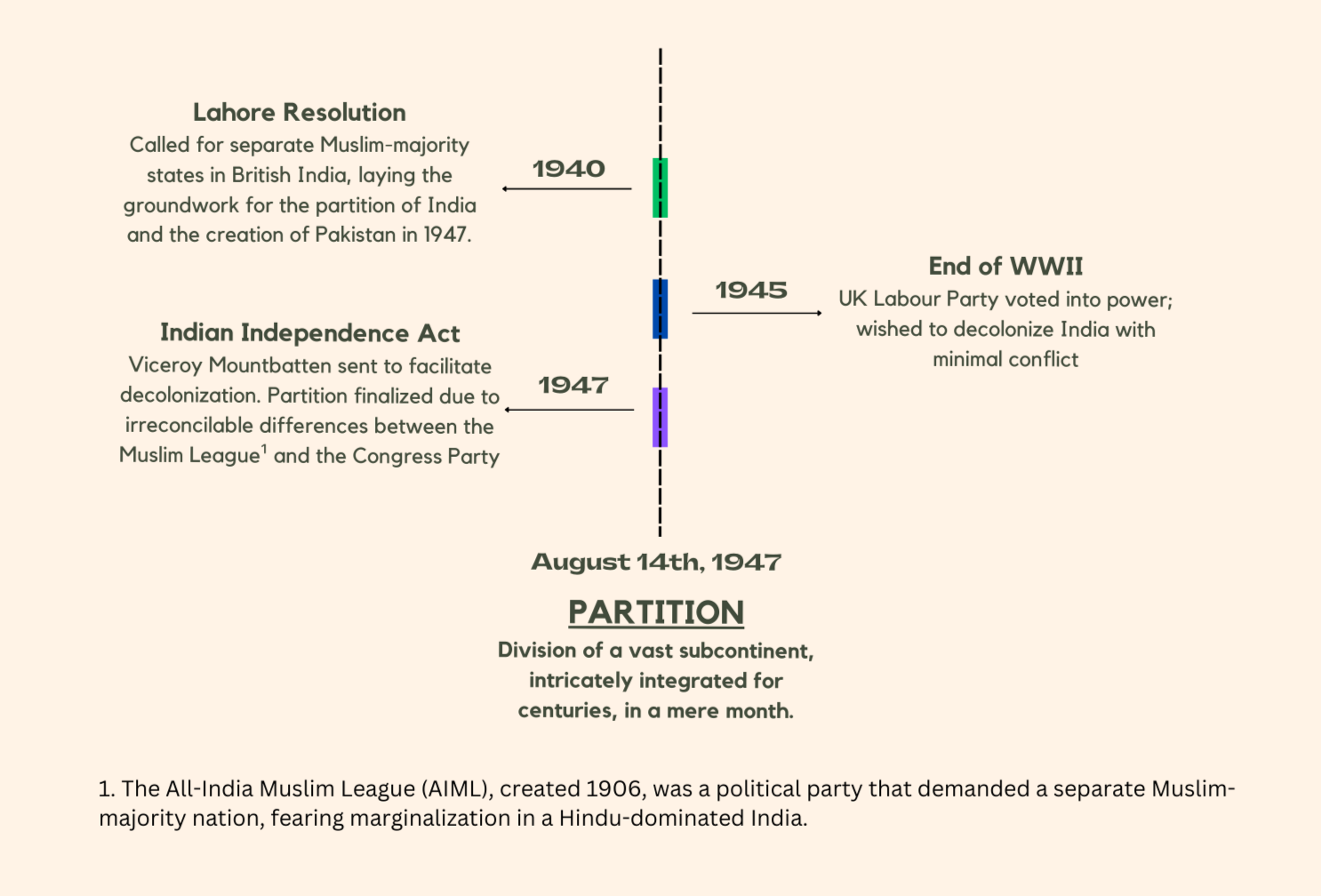
"The task of dividing the two nations was assigned to Sir Cyril Radcliffe, a lawyer who had never been to India before and knew nothing of its history, society or traditions. Radcliffe, perspiring profusely in the unfamiliar heat, drew up his maps in less than five weeks, dividing provinces, districts, villages, homes and hearts – and promptly scuttled to Britain, never to return to India."
~ Shashi Tharoor, current Indian member of Parliament
“British troops leave India after independence from England (1947).” YouTube, uploaded by British Pathé, 10 November 2020, https://www.youtube.com/watch?v=zC-rgedAmdw&ab_channel=BritishPath%C3%A9
"I felt it was essential that the people of India themselves should decide this question of partition."
~ Lord Mountbatten, 4 June 1947
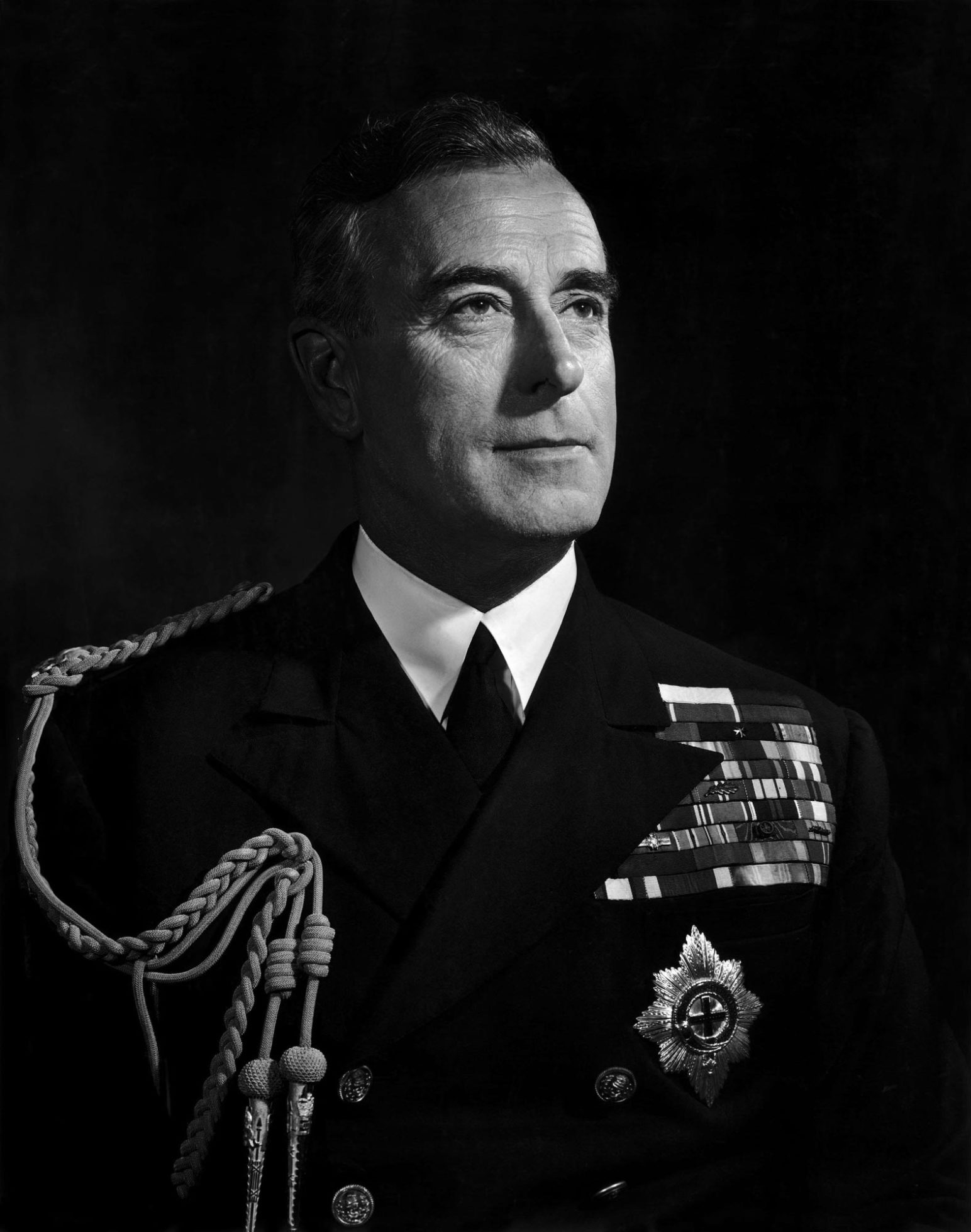
Karsh, Yousef. Lord Louis Mountbatten. 1943. karsh.org, https://karsh.org/photographs/lord-louis-mountbatten/.
